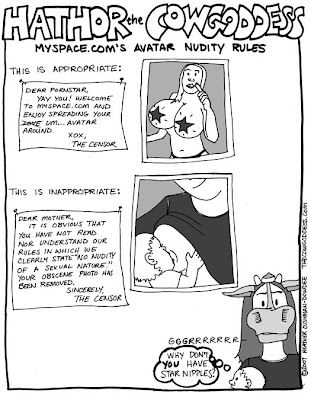Excellent article in The Independent which examines the legal systems attitudes to rape as a crime. The article highlights the current situation where the legal system consistly believes the best of men and the worst of women. The message to men is that unless they have a previous conviction they may rape with impunity and immunity.
************************
There is a crisis in the criminal justice system: despite years of heroic efforts by the survivors of sexual violence to help us understand that rape is not an excess of desire, nor the incontinent rush of incompetent men, that it is a crime of domination, the system believes the best of men and the worst of women.
Despite the rapport between survivors, feminist self-help networks and scholars and some senior police officers - not least Sir Ian Blair, the Metropolitan Police Commissioner, himself an expert in rape prosecution - rank-and-file policing delivers no better outcomes. Despite the enlightened Sexual Offences Act 2003 , judges and juries, it seems, would rather not convict men.
The message to men is that unless they have a previous conviction they may rape with impunity and immunity. Most of their victims - thousands of them - know who their attackers are. Sometimes the police track them down; sometimes they don't bother.
There is exemplary policing, but typically the police give up too early. Judges and juries acquit too easily. Politicians, with few noble exceptions, keep schtum. Women feel muddled, abandoned and ashamed. Men feel got-at, angry and ashamed.
Hardly anyone with any power to do anything about it helps men to think about the reform of their relationships with women. The most moralising government and interventionist Home Office in living memory doesn't get it yet: that the sexual disrespect of women is domination worth condemning.
This is a crisis - it is a crisis of knowing. Popular prejudices about love and passion, of sex and sobriety, still result in women being blamed if they do not fight to the death, or extend goodwill to men rather than regarding them with permanent, paranoid vigilance.
The body of the woman still has to be the battleground mapping the evidence of conflict: she has to show the scars of dangerous, perhaps self-destructive, resistance to overwhelming force. Otherwise the conflict is translated as compliance.
If drink is involved - as it often is, Britons being the biggest drinkers in Europe - then the woman is maligned as irresponsible and the man forgiven as merely reasonable.
Professor Liz Kelly's research among survivors, the Met's own research into 677 rape-case files, the accumulated wisdom of the Association of Chief Police Officers (Acpo), Her Majesty's Inspectorate of Constabulary and the Crown Prosecution Service are all converging. They are telling a complicated story about rape: it unsettles the "common sense" about where rape happens and to whom and why. It is not the man in a balaclava by a dark canal; it's a man the woman knows.
"It's more mundane - rape is about the complexities of everyday life," says Kelly. Rape sometimes strikes like lightning, but usually it is only ordinary, inside - not outside - a relationship. Dave Gee, an adviser with Acpo, draws attention to the distinction between "stranger rape and relationship rape" - it is this disparity that confounds the system. It also confuses the society, which doesn't seem to believe that "real rape" happens in "real life".
Police ideologies were challenged and changed by the rape crisis centres organised by the women's movement in most cities in Britain during the Seventies and Eighties because the police knew they knew more about rape than they did. The nation was transfixed by Roger Graef's mesmerising fly-on-the-wall documentary showing Thames Valley police harassing a victim in 1982.
Women do not get justice from judges or juries - yet juries are only us. "The country we live in is the jury," says South Essex Rape Crisis Centre. There have been huge efforts to "keep women in the system, to support a woman from report to court, but the system doesn't work".
The organisation adds: "We know the impact rape has on their friends and their families and their colleagues - and on men. Everybody, women and men, is being controlled by the impact of a small percentage of perpetrators. We're used to talking about women fearing to go out at night, but we don't talk so much about the impact on men and their uncertainties about how they should behave. All of our behaviours are led by the effects of perpetrators over the everyday lives of women - and men."
Professor Kelly warns that the crisis in the courts - those decisive public tribunals - is encouraging despair: "There is a lot of evidence that something fundamental needs to happen, that the criminal justice system needs to totally rethink the construction of cases in the courts. But it isn't happening. I am very worried that the adversarial legal system and institutional sexism can't deliver justice to women. I don't want to think it, but that's what it feels like." She believes that "the police will need to run the whole process differently".
Dave Gee warns that rape is still the only crime in which "too often society judges the victim before it investigates the offence".
It is not as if the Home Office does not know - Professor Kelly's research was published by the Home Office; ministers and Parliament were closely involved in the mighty overhaul of the law on sexual offences which yielded the inspired changes on consent and capacity.
But there is bad faith between the victims and the system, which squanders the best evidence available to help judges and juries deliver justice - that of the women themselves. Our culture cannot empathise with victims because it sympathises with defendants and their version of events. A woman's abuse is a perpetrator's pleasure, no means yes, and submission is consent.
But even this self-deception requires the effort of interpretation. And if we demand it of the perpetrators we must demand it of ourselves. We all need help to raise our collective consciousness. We can do it: we have changed our minds about smoking and fox-hunting and beating children; we have made drinking and driving lose its legitimacy. Now is the time for a cultural revolution against sexual abuse and rape.
article










